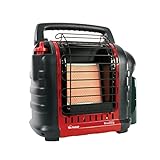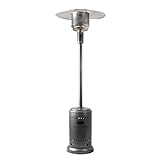The level of warmth and comfort in your house starts with the types of heating systems you use.
The efficiency of your heating system is based on the fuel we use for it. Propane is extracted and separated from oil refining and this is stored in the liquid form in a tank and then converted as gas when it is released.
This method is achieved with the help of a storage tank installation.
Regular maintenance of the propane gas should be arranged and stored in the tank. With the help of propane heaters, you can heat the required area in very little time.
For a propane heater to be installed you should have a storage tank and matches or a lighter. Installation along with the proper maintenance is a must.
How To Start A Propane Heater?
Once you have opted for a propane heater you have to immediately set out for a proper outdoors to maintain the working condition of the system. Now, let’s see how to light a propane heater.
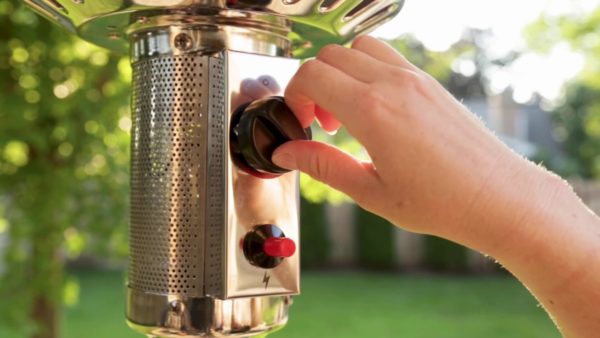
- If you have set out the right place for the propane heater, look out for proper ventilation.
- Moving the heater should be done in a very precise manner. It is advisable to use a trolley while moving the heater as it would weigh heavier.
- Before hooking up your gas with the heating system just for once conduct a final inspection on the heating system.
- Check for any damages in the regulators as they are responsible for the flow of gas into your home through propane heaters. Regulators should work efficiently as excessive flow could cause or ignite a fire or explosion inside the home. Damages may include cracks or loose fittings.
Once the process is perfectly done you can start lighting your heater by removing the valve cap and attaching the heater to the propane tank. The valve is placed at the top of your tank.
Twist the regulator knob anti-clockwise once it is attached. Maintain a medium setting.
Lighting Your Propane Heater
Take a lighter in front of the mesh screen near the regulator.
You cannot touch the mesh as there will be metal wiring placed and at times you would need extra-long match sticks to light the heater.
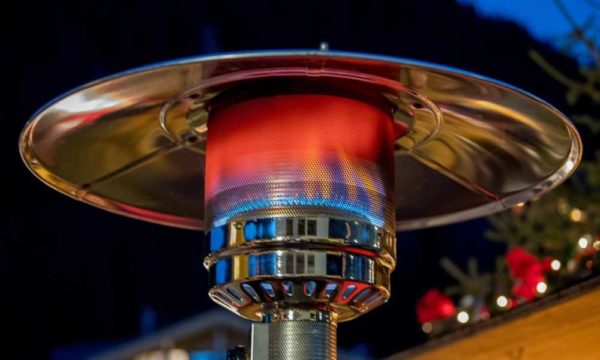
It is important to use a lighter and not a match, as the flame from a match is not hot enough to light the propane. The best way to hold the lighter when lighting the heater is with your thumb and first two fingers.
Place the lighter so that the flame is touching the edge of the burner, and then turn on the propane by turning the knob to the “on” position.
Keep your hand close to the valve in case it needs to be turned off quickly.
The flame from the lighter should be enough to light the propane, but if it is not, give the handle a quick turn and then release it. This should generate enough heat to light the propane in most cases.
There will be a button present at the end of the stem of the mesh screen and push in the button for the safety shut down of the valve.
Try to hold the button until the burner ignites light.
Release the button slowly once the light is ignited.
Shutting Off The Propane Heater
Turn the regulator knob from medium setting in a clockwise direction to the off position until it reaches the off symbol.
Turn the valve in the opposite direction in the way you turned it on. Keep turning the handle until it won’t turn anymore. By doing this you can close the valve on the propane tank.
After the complete shut-off, the system remains hot for at least 7 to 8 minutes.
Give the heater some time to completely cool down as it is very dangerous to work further.
After the complete shutdown, check the heater by placing your hand near the heater to feel the heat emission.
Remove the heater by twisting the rubber fastener until you can completely remove the propane heater out of the tank’s valve. After removing the heater, store it by facing it down to prevent water from pooling inside of it.
Now place the valve cap back by sliding it on the propane tank.
Bestselling Propane Heaters
Important Points To Note While Using A Propane Heater
- The usage of propane heaters has increased over the past years and people are likely to handle every situation that are been considered to be dangerous.
- Even though they are very well aware of the safety features, some may remain dangerous until now.
- The major problem with the propane heaters is the fire. Though today’s propane heaters come with a manual switch to automatically shut off the heaters and that does not mean it eliminates the possibility of fire catching.
- Propane is highly flammable and these heaters are built in a way to produce heat by burning the gas. So in such cases, if any leakage of gas is found, it should be immediately noted otherwise the space heater could burst into flames and could cause a major fire accident.
- Regular refueling should be done. The process should be done outside or in a well-ventilated space to prevent fumes from filling the air and igniting any spark inside it.
- When the propane heater is not properly vented you could see the depletion of oxygen in the air. To burn the fuel, the heater requires oxygen as a part of the combustion process.
- By ventilating, oxygen is brought up to the propane heater from outside and carbon monoxide produced is expelled during the process. Without ventilation, such things become difficult and bizarre.
- Without a properly operating carbon monoxide detector you could not sense the gas as this gas contains no odor, no taste, and no color.
- The common symptoms of carbon monoxide emission are dizziness, exhaustion, nausea, headaches, confusion, and soreness.
- At the same time, look out for propane heaters that have built-in oxygen depletion, sensing monitors.
- They can sense the oxygen level present in the air and warn if the oxygen level drops too low. An alarm will go around when this process takes down. This in turn automatically switches or shuts off the heater to prevent further oxygen depletion in the air.
- By ensuring such things beforehand will help you to stay safe and cautious.
Steps To Choose A Propane Heater
- The propane heaters should be carefully used because the space needed for a heating system should be reliable and comfortable.
- Propane heaters are used in the form of fuel generated as gas which in turn leaves a carbon footprint. To reduce such emissions you should look out for cleaner-burning fuel.
- Energy efficiency is one of the most reliable assurances in reducing long-term heating costs.
- Propane heaters come in with a most wanted advantage in which the monthly electric bill is consumed at a very low cost compared with the other heating systems. This is due to the geothermal activities and fuel efficiency.
Pros And Cons Of A Propane Heater
Each fuel for patio heaters has different pros and cons depending upon the fuel you wanted to use for your heating system.
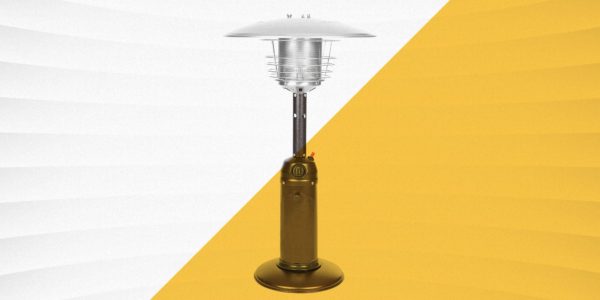
Pros:
- The propane heaters are non-toxic and are safer to use. It burns clean because the tank is buried underground.
- It has no greenhouse emissions.
- Low-maintenance and lasts longer.
- It runs on all appliances in your home and the usage is not limited. It opts out of the expensive and less efficient electrical options.
- Propane tanks can withstand 1000 gallons of fuel and you can order it all at once. In turn, it will reduce the amount spent on gases frequently.
Cons:
- It produces fewer BTUs (British Thermal Unit) than other heating systems. Though the cost of propane beats oil, you need to use more gas than other patio heaters to stay comfortable.
- It involves high upfront costs when you want to change or convert your type of heating system into natural gas or electric heating systems. At times the transformation would cost you some unavoidable damages.
- One of the huge disadvantages of propane heating systems is tank maintenance. You will be responsible for any tank corrosion or leakages. This series of tasks costs you more than you needed for installations.
Things To Know Before Buying A Propane Heater
Ensuring the working condition of your heating system is one of the safest ways to protect your home and outdoor spaces. Propane heat is the major selling point when it comes to buying a home. There are a few things to consider before buying a propane heater and are as follows:
Before buying anything one should probably consider the purpose of the thing that is being purchased.
Likewise, propane is one of the versatile fuels and it is most commonly used in places for heating and powering up certain appliances. Before converting the system into completely propane know the full advantages of the system and make use of it thoroughly.
Installation of a propane system comes hand in hand with tank storage. Know who owns the propane tank.
Some homes own their propane tank outright while others just rent it. One of the major disadvantages of owning a propane tank outright is that you have to pay for the whole process including the installation and also other maintenance.
But if you rent it you have more freedom in balancing the cost upfront and you are no longer responsible for tanks corrosion or maintenance.
Here the size of the tank of course does matter. The larger the tank, the easier you can to meet the needs and merits of the system. Normally a home propane tank’s size varies from 120 to over 1200 gallons. By knowing the size of the propane tank you can know the exact time needed for a refill.
Before getting a house with propane heaters it is always advisable to know the tank maintenance records and if possible it is better to personally check the records of maintenance. Thoroughly check the inspection time and date to know the upcoming maintenance.


